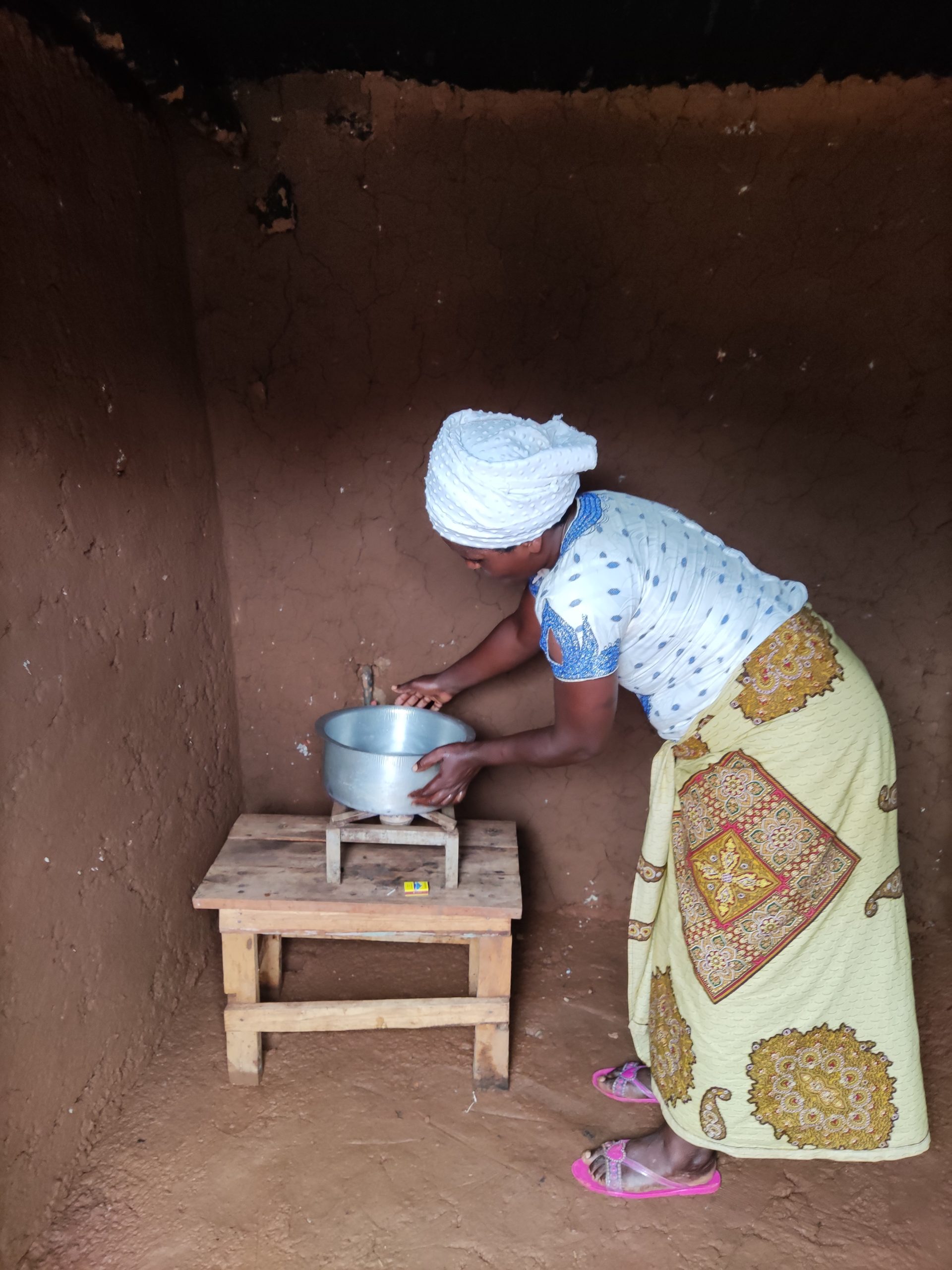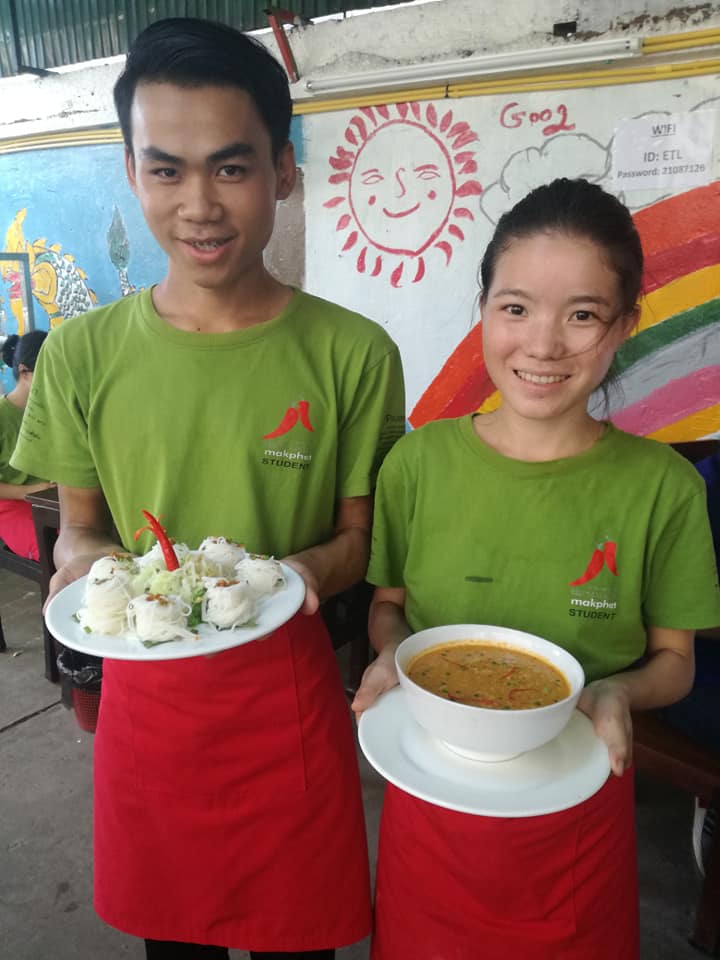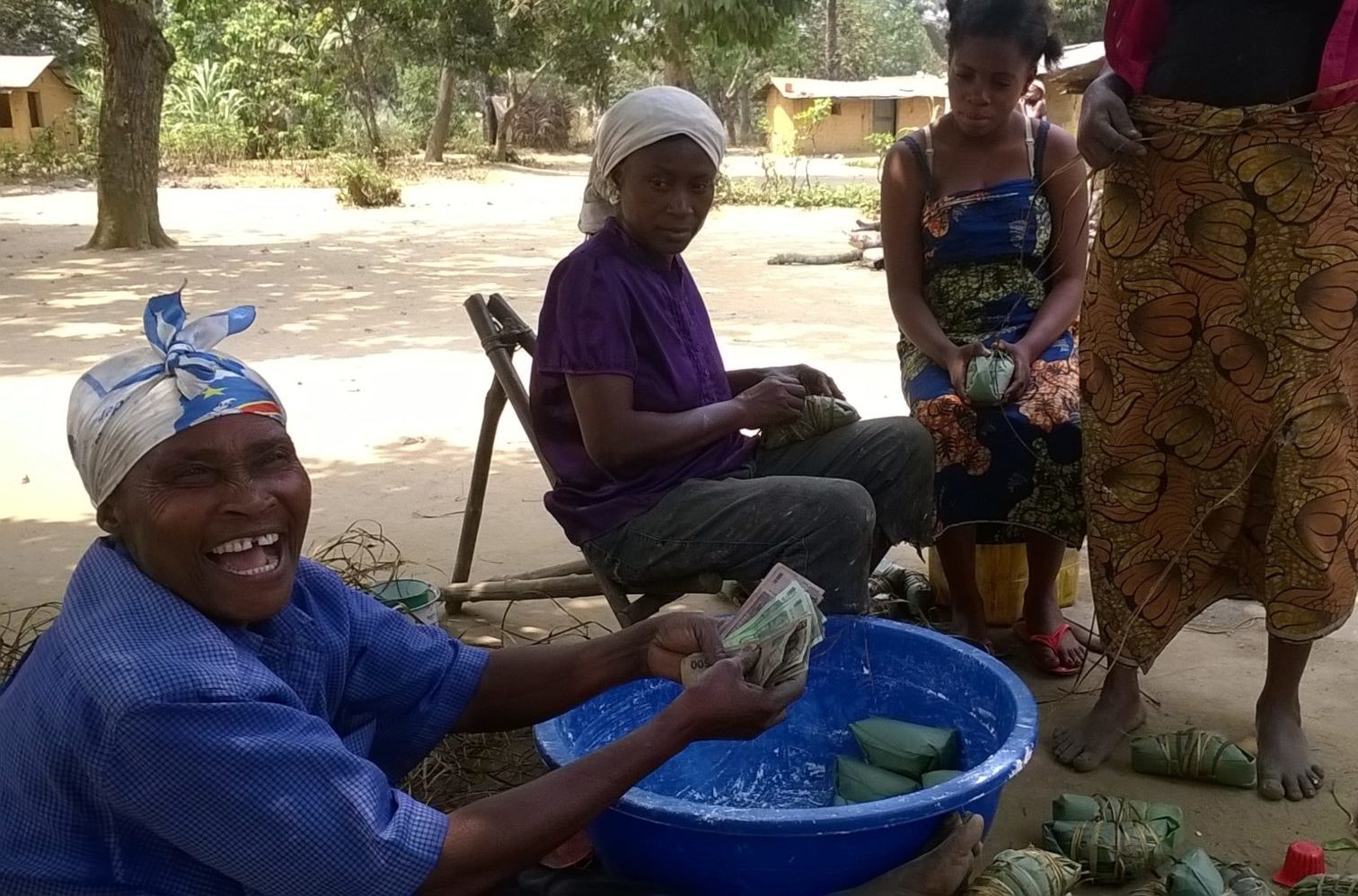The Batoraki family in Rwanda
Achieving food sovereignty is possible
The Batoraki family in Rwanda explain how they have seen an improvement in their living conditions.
“With my husband, Pontien, and my seven children, life was very hard. We grew potatoes which we sometimes sold on the market and that allowed us to feed ourselves. But it didn’t provide enough income to send all our children to school. When the harvest was poor, we went hungry” says Ancilla Batoraki, 47, her voice filled with emotion. Then a big smile lights up her face.
The Batoraki family live in a small village house on a remote hillside in Rwanda’s Gicumbi district where Ancilla and Pontien were raising their seven children in precarious living conditions, mainly surviving on income derived from growing potatoes. One day they were visited by a representative of Secodev’s partner in the local area, inviting them to join an association of small-scale farmers.

They were given seeds and told how this association would provide the opportunity for them to learn new agroecological techniques and how to diversify and transform their crops, enabling them to get a better price for their produce. After some hesitation, the couple decided to give it a go. “At first, we were quite apprehensive. We only knew about growing potatoes and I wondered what we would do if these techniques don’t work? If these other crops fail? How would I feed my family?” she explains. “At first, Pontien was against the idea. So, I went ahead alone, and began planting the seeds they had given us. And it worked. Pontien was very happy!”
The Batoraki family became part of the Coderyna cooperative which brings together 58 smallholders in the district (21 men and 37 women). Alongside seed distribution, the association offers training in agroecological techniques and livestock rotation. So Ancilla and Pontian were given a cow. Ancilla quickly learned how to make a profit from the cow and care for it. The cow’s milk served two purposes; it improved the children’s nutrition, and it was also sold to provide additional income for the family.
Now all the children in the family attend school. Furthermore, since joining the cooperative, the family has been able to significantly diversify its production. Moving away from a mono-crop potato cultivation, they now have a larger piece of land where they grow wheat, runner beans and maize. The cooperative’s processing and storage facilities allows producers to sell out of season, and the links with local traders facilitate access of products to markets in the region.
The living conditions of farmers who have joined the cooperative have significantly improved. In 2020, Ancilla was delighted to be amongst one of the households equipped to run on biogas. She was provided with a stove which she can fuel with the dung of their cow, Inshongore, “The Elegant”, in Kinyarwanda, to which the family has become very attached. “This appliance is great because I no longer have to go out searching for wood. I can just turn the knob and start cooking. I have more time to help the children after school, and also to get involved in the cooperative. All thanks to the project.”
Joining a farmers’ organisation, empowers small scale farmers to broaden their expertise and become self-reliant. It is an indispensable step towards food sovereignty and towards effecting significant and sustainable change in remote regions.
Souk and her family in Laos
A bright future for a young girl and her family in Laos

Souk: from the street to the opening of her own restaurant Souk was just 20 years old when family poverty forced her to leave the isolated village of Ban Ladkhuaiy, situated in a remote rural area in central Laos. She left for the capital, Vientiane hoping to find a job, but having spent much of her time helping the family with their crops and household chores, she had received very little schooling. Once in town, Souk found herself wandering the streets, a dangerous place to be, where, with no money to buy food, she ran a high risk of falling into prostitution and drugs. Fortunately, before it came to that some local workers from Secodev’s partner, “Peuan Mit”, crossed paths with her. She was taken to a safe shelter, where she was cared for, fed and housed.
The Vientiane and Luang Prabang reception centres take in children, adolescents and young adults who find themselves on the streets in extremely precarious situations. Secodev then enables these young people to return to school or to undertake vocational training, giving them the opportunity to find employment or start a small business afterwards. Secodev funds training in the restaurant and hotel sectors, as well as in mechanics. “If I hadn’t joined the program, I don’t know what would have happened to me, and my family would have starved to death.”
Souk decided to study catering. A career that appealed to her, with good job prospects and the possibility to earn enough to support her family financially. In January 2020, immediately after completing her course, she was hired to work in a restaurant in Vientiane. Two months later, the global Covid-19 pandemic struck, and the very strict containment measures led not only to the closure of the restaurant, but also to the closure of her accommodation. Souk had no choice but to return home where she was confronted with a catastrophic situation in her village.
Everything, including food, was in critically short supply. Souk had remained in touch with the facilitators working in the centre, and she contacted them to ask for assistance. In April 2020, an emergency fund was set up to address critical situations, with essential supplies being made available: “I had no idea where to turn. My parents, sisters and brothers were all going hungry. And now, with my return, they had one more mouth to feed. The staff had already saved my life once and now they’ve saved all my family too. I cannot thank them enough.”
When the government reopened the schools a few months later, Secodev and its partner made the case to the authorities to also authorise the centre to reopen. The negotiations succeeded and Souk, alongside other young people, was able to return. With restaurants still shut, Souk was invited to take another vocational course, this time in market gardening. She seized the opportunity, completing it in November 2020. “I loved learning how to grow fruit and vegetables.
Now back in my village, I grow crops around the house. As soon as I can, at the end of the health crisis, I’m going to open a small restaurant in my village where I’ll serve up my own fruits and vegetables. The centre has given me back my confidence in the future and taught me two very interesting professions.”
Alphonsine in the Democratic Republic of Congo
A new start for Alphonsine and her family
Alphonsine, a single parent, explains how she is able to provide for her family in the Democratic Republic of Congo
Alphonsine Mayala and president of the local farming association, Yika Mpiko, situated on the outskirts of the city of Kinshasa: “I’m a widow and have to take care of my children, as well as my daughter’s children.” Before the Secodev-led project teams came to the area, Alphonsine lived off subsistence farming, mostly planting cassava on a small rental plot. In 2016, the program led by Secodev in the DRC offered to support her by improving her agricultural production yields. “The project taught me how to grow food whilst respecting the environment. Today in addition to cassava, I also harvest groundnuts and some vegetables.” The on-site program teaches volunteer farmers agroecological practices to increase their yields, whilst limiting the negative impact of agricultural production on their environment.

Alphonsine joined a small farmers’ association of 40 members near her village. She quickly took on the role as president. Women are widely represented, even in the majority. “We mothers work together to grow food to sell and for the family. At first, the husbands of the mothers who were members of the association voiced concerned about them working with men. But now everyone is happy and proud to see how well
the association has developed.” This adhesion of smallholders to small farming groups enables them to take control over their lives and to farm in a way that helps them become self-sufficient and increase their income. In parallel they improve their living conditions and those of their families.

